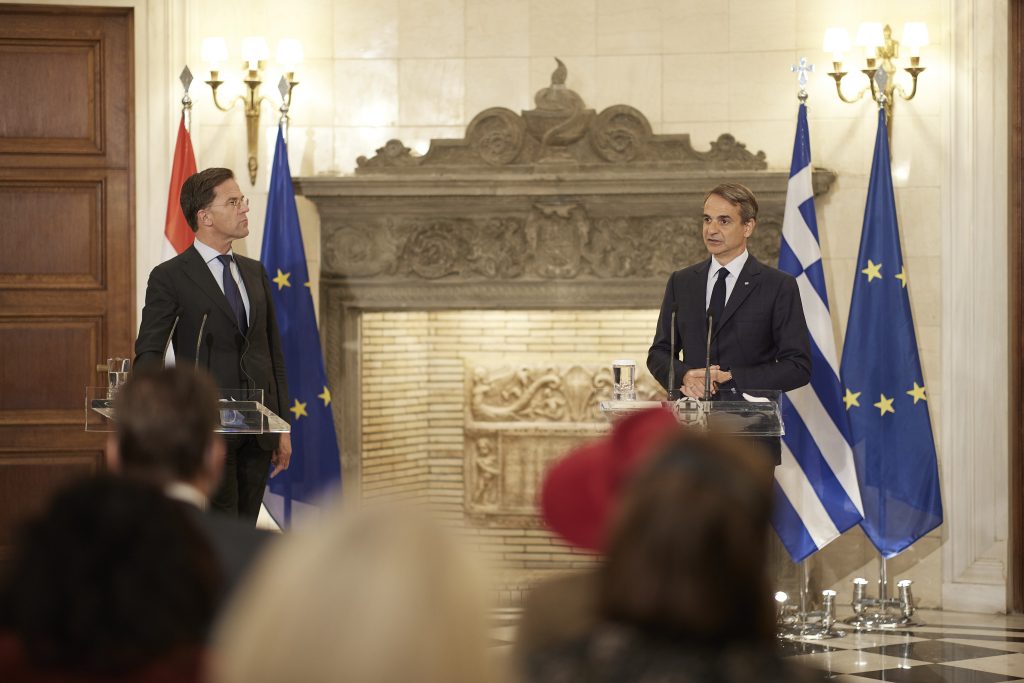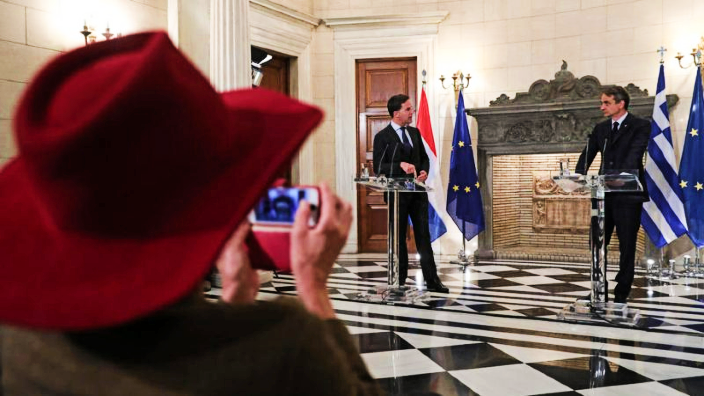Greek Prime Minister, Kyriakos Mitsotakis, has angrily defended his government’s immigration policy in a heated exchange with a Dutch journalist who accused him of lying over the alleged turning away of asylum seekers in the Aegean.
During a joint press conference with his Dutch counterpart, Mark Rutte, late on Tuesday, Mitsotakis was accused of “narcissistic abuse” with his denials that Greek authorities are refusing asylum seekers entry at its land and sea borders.
“There has been overwhelming evidence [about pushback], and you keep denying and lying. This is narcissistic abuse,” reporter, Ingeborg Beugel, said during question time.
“Why aren’t you being honest? Why don’t you just say, ‘Brussels left us alone, we waited for six years and nobody did anything to relocate refugees and, yes, I am now doing harsh, brutal pushbacks’?”
Some commentators criticised her tone as that of an activist not a journalist, while others noted that for the first time Mitsotakis had to face “real” questions.

Clearly irate, Mitsotakis responded: “I understand that in the Netherlands you have a culture of asking direct questions to politicians, which I very much respect. What I will not accept is that in this office you will insult me or the Greek people with accusations and expressions that are not supported by material facts.”
Mitsotakis argued that the country deserved praise for saving “hundreds, if not thousands” of people at sea during the recent border crisis.
When Beugel attempted to interrupt him to say their living conditions were “appalling,” Mitsotakis bristled that she clearly hadn’t been to the new and “impeccable” EU-funded facility on Samos – a facility that aid groups have likened to a prison.
“Rather than putting the blame on Greece, you should put the blame on those who have been instrumentalising migration systematically, pushing people in [a] desperate situation from a safe country, because I need to remind you that people in Turkey are not in danger,” he said.
The Dutch PM defended his Greek counterpart’s response, saying Turkey is a safe country and emphasised that Greece is only trying to protect the EU external border.
Source: euroactiv.com.

